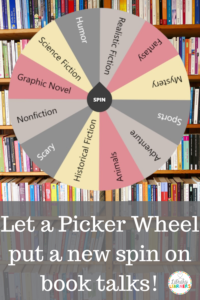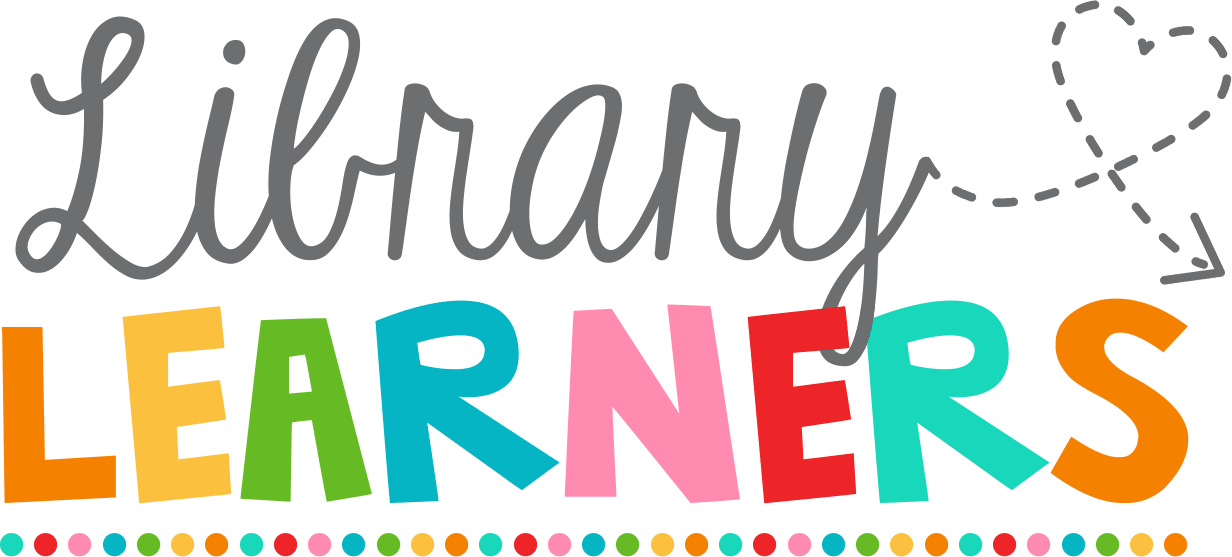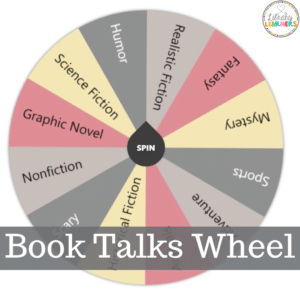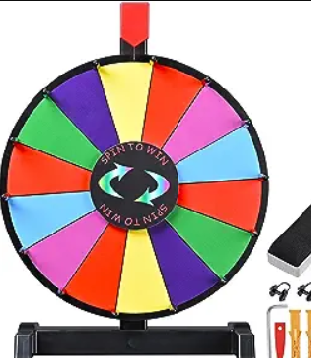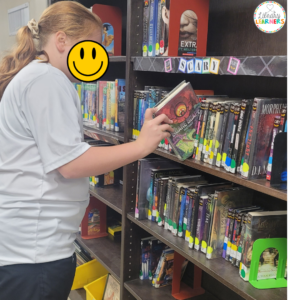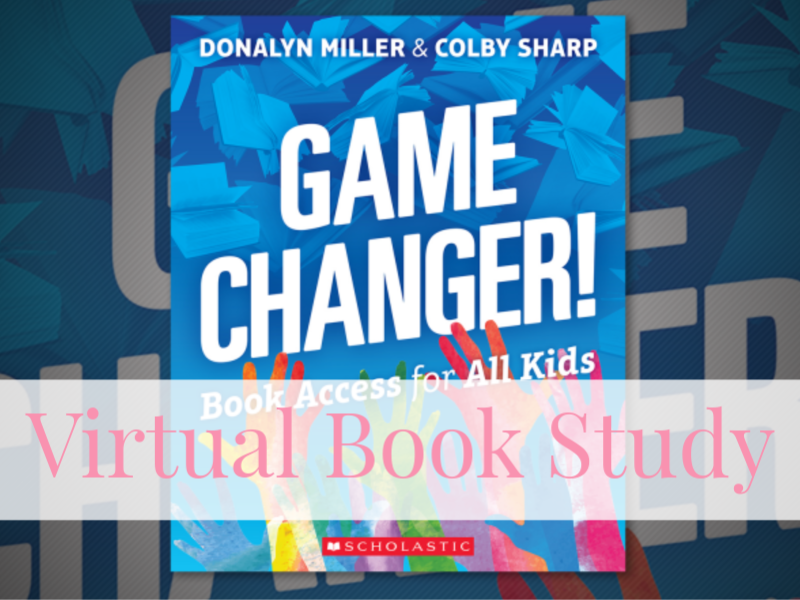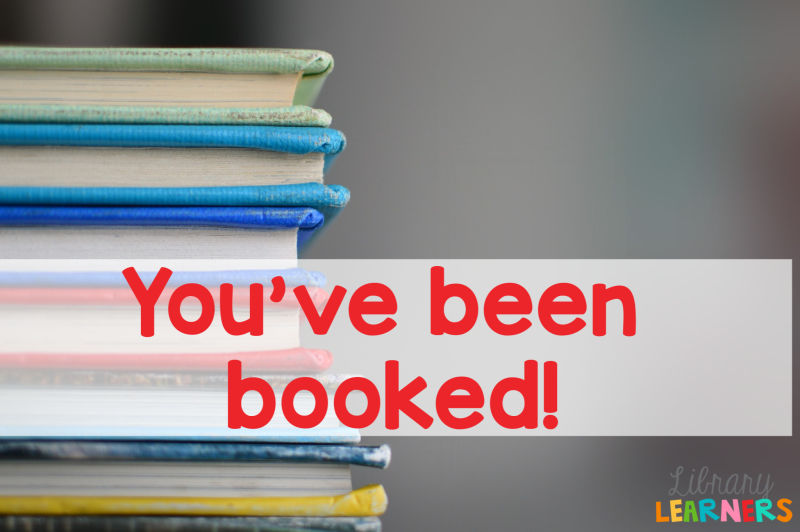Book Talks: Reinvent the Wheel
Book talks ignite students’ passion for reading, while getting them hooked and leaving them wanting more. The teacher or librarian chooses a book before class begins, and reads aloud an excerpt to her class, trying to get them excited about the book. But what if there was a better, deeper way to increase student involvement in the book talk process, while decreasing our workload?
Planning Ahead for Book Talks
As a K-6 librarian, choosing books for book talks had become a thorn in my side. Do I book talk the same book to each grade level? If I do, then how do I navigate the problem of having so many students wanting the same book? How do I keep track of which books I’ve talked about in which class? And finally, how do I choose? There are so many good books! I often wanted to talk about the books I’ve read myself, which just left me in a rut of doing the same books over and over. I spent more time trying to choose which book to promote than T. Swift spends writing love songs. There had to be an easier way.
Work Smarter, Not Harder
This conundrum led me to a new, no hassle way of doing book talks that gets my students more involved and more excited than ever! I used a very simple magic formula of voice, choice, and ownership that all the rubric writers have been telling teachers to use: I put the decision in my students’ hands.
First, I found a free site that would save a spinning picker wheel for me. I used https://pickerwheel.com/ but there are many different sites that will do the same. Pickerwheel.com will also let you add images which is a nice addition if you want to add your genre labels. You could also use a tabletop spinner like the one pictured from Amazon. Then I entered all my genres into the wheel, and saved it. That’s all that was needed; I was ready for class!
Reinventing the Wheel
It’s best to do the book talk before students check out, since you will always have at least one student who wants it. Other times, I use a book talk as an end of class time filler. Students immediately pay attention when the wheel comes up on the screen, and many times they begin chanting for their favorite genre to come up. Usually in my class that means we hear, “Scary, scary, scary!”
The wheel lands on a genre – let’s say adventure for example – and I walk over to the adventure section and ask, “Who is an adventure book expert?” Hands go up and I choose a student who I know is a fan from conversations with them. And if there isn’t one, that’s okay, someone will be willing to go pick a book that looks cool.
That student will take a few minutes to choose a book they’d like me to share with the class. While they are choosing, we will have a conversation about what adventure is and maybe share examples of adventure books we’ve enjoyed. This year, I’ve had some new students who were not present for last year’s genre lessons. They fell in love with realistic fiction, not because of our book talks, but because of the genre talk!
The Book Talk
At this point, you can choose to have a student do the book talk if you wish and if they are comfortable doing so. Most of the time I’m the one speaking, and depending on how much time I have I may visit different parts of the book. I may introduce the author and say something like, “Oh this is written by Gordon Korman! He’s written some really good realistic fiction books as well!” We could look at the publication date, “Wow! This was written in 1955, I wonder if things were very different back then.”
I’ll read the back aloud, modeling how to make a good book choice. It’s shocking how many students choose based on the cover alone and can’t be bothered to read the back. If time allows, I’ll read aloud more of the inside such as the first chapter or one in the middle if I’m aware of a good cliffhanger. Afterward, if there is more than one student interested in the book, I will help them put a hold on it to begin a queue.
Are Book Talks Too Scary?
I’ll admit, it is scary to have to read aloud from a book you have never read before. What if it has something inappropriate, or a bad word in it? Well, first of all, my hope is that we have only chosen books for our libraries that would be suitable for the grade levels we teach. Still, there are words we don’t say in school and difficult situations that are in books. Rule #1 is you don’t have to say anything you don’t want to say. Self censorship is not book censorship. Should you come upon one of those situations or words, there are ways to handle it. You can say, “Oh, this is a word I’m not comfortable saying, I’ll say shoot instead.” Or, “I’m sorry guys, I can’t read this one aloud to the class because it has some hairy situations in it.” I guarantee they will all really be clamoring to get their hands on it after that.
Come across a name you can’t pronounce? That’s ok, this is a great chance to model not getting stuck on names when reading! There are opportunities to learn from these experiences, especially if you use your honest feelings as a tool to further the discussion. When students see our vulnerability, that strengthens their connection to us as human beings.
More Ways to Implement the Wheel of Book Talks
Since starting the genre wheel, I’ve reworked it a couple of ways for my lower grades. I now have a Quick Reads wheel for my easier chapter books, since they are in bins by subject. I’ve also started an alphabet wheel. If I have extra time with K-2, we spin the wheel and may choose someone whose last name starts with that letter to choose a book by an author whose last name starts with the same letter. This is increasing their connections to different authors. It’s also helping them to learn how the library is organized. You could also use this method for libraries that aren’t genrefied.
Why Give Students the Choice?
Doing book talks this way puts the power in students’ hands. In turn this increases their buy-in and interest. When they see another student labeled an “expert”, they may then wish they could be called an “expert”. They may begin wondering if there is a genre they could really fall in love with. This self-reflection leads to growth as a reader and identification with themselves as an authority on their genre of choice. Not only that, but they often choose books that I’ve overlooked, getting them back into circulation.
There is no denying that the buildup of anticipation when the wheel is spun releases endorphins and gets the kids excited about books in a way that the librarian simply holding up a book does not. I have read of other ways librarians get that anticipation built up. For example, they pull items out of a bag and have students guess what the book will be about. I was never one of those people who could remember to plan ahead like that every time, so I appreciate the simplicity of the wheel.
Student Book Talks Create Shared Ownership
I don’t think I’ll ever go back to the old way of doing book talks completely, but I will certainly share a great book I’ve read if I feel like doing so. Doing book talks this way has not only taken a little off of my plate, but also promotes a culture of shared ownership of the library. When students see one of themselves promoting the material, it carries a different kind of weight than when a grownup is the one telling them, “Read this, it’s great!” It’s kind of like when your mom tells you you’re smart, but you don’t believe her, because ‘Moms have to say that.’ They might think “You’re the librarian, you have to say that.” But if another student says it’s good, it must be true!
And, if none of you have read the chosen book yet, it’s okay! Look at it together, and share your feelings with each other on whether it interests you or not. When they see your excitement as you discover a good book together, they’ll be more likely to believe you the next time you recommend a great new book!
Our Guest Author
Many thanks to our guest author Kerry Witherington for sharing her idea in our Learning Librarians Facebook group and then agreeing to write this blog post to share more details about her great idea for book talks!
Kerry has a rich and fulfilling career in education, spanning over two decades as both a dedicated school librarian and an enthusiastic teacher. With a deep passion for fostering a love of reading among students, she has found immense joy in her role as an educator. Based in rural Louisiana, she cherishes the opportunity to make a positive impact on the lives of young learners, instilling in them the lifelong gift of a love for books and learning. Kerry firmly believes that she has the best job in the world, and her commitment to this mission shines through in her teaching and library work.
You might also like:
- Reading Genres Fiction Roll a Story Writing Center
- Reading Genres Fiction Would You Rather Task Cards
Save this idea for later
